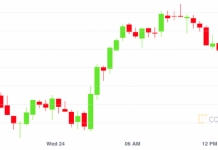Hot and cold wallets represent fundamentally different approaches to cryptocurrency storage. In a nutshell, hot wallets are connected to the internet, while cold wallets remain offline. Each type of wallet has distinct security implications, features, and use cases, and deciding which option suits your needs should be based on your risk tolerance and preferences.
What Is a Hot Wallet?
A hot wallet is an online cryptocurrency storage solution. These wallets can be software-based, such as mobile apps, desktop programs, or web-based platforms, and are typically easy to use and accessible.
The primary advantage of a hot wallet is its convenience. Because it’s online, you can quickly access and transfer cryptocurrency, making it ideal for daily transactions or active trading. Hot wallets are also suitable for beginners and experienced users as they have intuitive interfaces and are compatible with various digital currencies.
Hot Wallet Security Considerations
While hot wallets are convenient, they come with inherent security risks. As they are online, they are vulnerable to hacking, phishing attacks, and other cybersecurity threats. The risk of unauthorised access remains despite encryption, password protection, and two-factor authentication (2FA) being standard.
Hot wallets provide the speed and flexibility required for those who frequently buy, sell, or trade cryptocurrencies. However, limiting the amount of cryptocurrency stored in a hot wallet is crucial, as this can mitigate the associated risks.
What Is a Cold Wallet?
A cold wallet is a completely offline storage solution. It can be a hardware device, a paper wallet, or a USB drive.
The most significant advantage of a cold wallet is its resistance to hacking and online threats. Because it is offline, cybercriminals cannot access it remotely. If the cold wallet is hardware, it is built to withstand external threats, such as physical damage. These wallets also often feature encrypted storage and backup capabilities to ensure the safety of your assets.
Cold Wallet Security Considerations
Since cold wallets are not connected to the internet, they offer a higher level of security against online attacks. However, physical security is of paramount importance when using cold wallets. If you lose your cold wallet or forget the password or recovery phrase, your cryptocurrency may become permanently inaccessible.
Cold wallets are generally recommended for long-term storage or holding large amounts of cryptocurrency. They offer enhanced security for investors who plan to hold their assets over extended periods rather than engage in frequent transactions.
Hot vs. Cold Wallets: Which Should You Choose?
Ultimately, it’s often best to adopt a hybrid approach. You can keep some funds in a hot wallet for everyday use and transfer the bulk of your cryptocurrency to a cold wallet for long-term storage. This way, you can enjoy the convenience of fast access while keeping the majority of your assets secure.


















